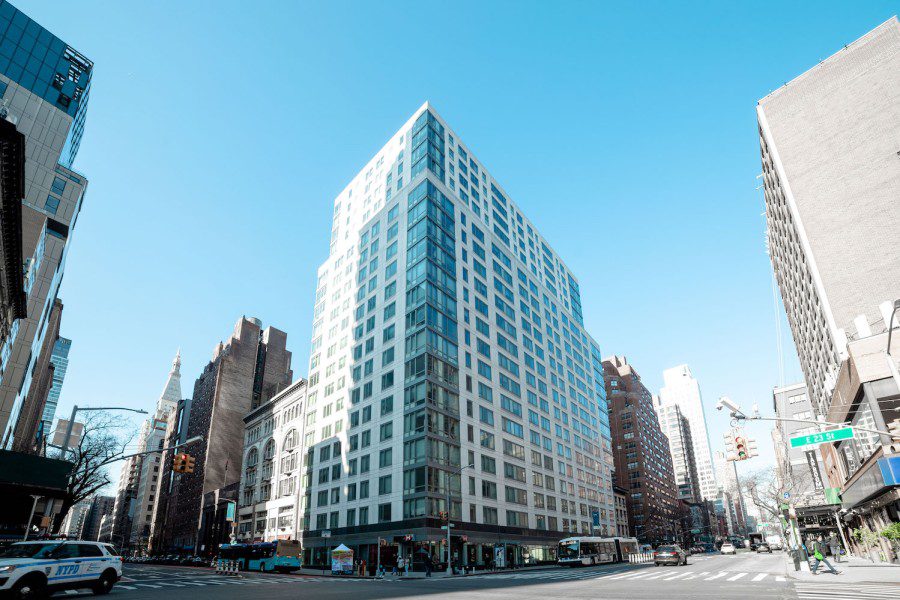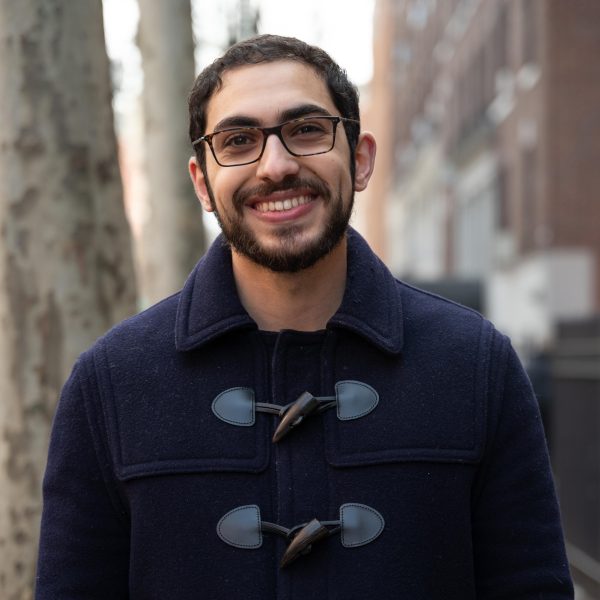NYU to make dorms more accessible after Justice Dept. complaint
After reaching an agreement with the U.S. Department of Justice, NYU will expand the accessibility of its student housing within the next five years.
Gramercy Green is located at 310 Third Ave. (Samson Tu for WSN)
November 30, 2022
NYU will begin a five-year effort to make its housing facilities more accessible after reaching an agreement with the U.S. Department of Justice. Some of the university’s housing facilities had previously been found to be in violation of the Americans with Disabilities Act.
The ADA requires that facilities owned by institutions like NYU must not have barriers to access for people with disabilities. Housing is required to have accessible bathrooms, water fountains and walkways. NYU’s steps to address noncompliance issues are outlined in the agreement, which was announced by Damian Williams, the U.S. Attorney of the Southern District of New York, on Tuesday, Nov. 22.
“The out-of-court agreement resolves a compliance review during which the U.S. Attorney’s Office identified various aspects of NYU’s student housing facilities that were not in compliance with Title III of the ADA and the ADA Standards for Accessible Design, including violations of the new construction provisions of the ADA and barriers to access to existing facilities,” the announcement of the agreement reads.
To find out which of its buildings are not in compliance with the ADA, the university agreed to first conduct a survey of its accommodation facilities over the next four months. After the survey is complete, NYU will update its website to include information designed to assist students with disabilities in securing and maintaining accessible housing accommodations.
NYU will also implement an access plan for on-campus housing, which will detail the actions the university will take to address the issues identified in the survey. A draft of the access plan is required to be made publicly available to students, faculty and staff on the university’s website over one year after the agreement’s effective date.
The university is also required to update its emergency evacuation and sheltering plans. NYU agreed to implement these changes across the university’s more than 4,000 housing units, which house approximately 12,000 students each semester.
Additionally, the agreement requires NYU to hire an ADA student housing coordinator, who will ensure the university meets the terms of the agreement. They will serve as a liaison between representatives from NYU offices, including facilities management and residential life, as well as the Office of the General Counsel. The ADA Student Housing Coordinator, along with other staff, will be required to complete additional training on accessibility requirements.
NYU spokesperson John Beckman told WSN that the university is committed to making its student housing fully compliant with the ADA.
“This agreement allows NYU to better meet those commitments over the next five years through careful surveying of its student housing system and making additional changes to improve accessibility,” Beckman said. “We think this is a good outcome.”
A similar agreement was established earlier this week between the Department of Justice and the University of California, Berkeley. The agreement looks to resolve allegations of noncompliance with the ADA, and requires the university to make online content — including live-streamed or recorded lectures, conferences and university events — accessible to individuals with auditory, visual or manual disabilities for the next three and a half years. NYU is the second university within the span of two days to address accessibility concerns and ADA noncompliance.
“The ADA requires colleges and universities to ensure that no individual is discriminated against on the basis of disability in the full and equal enjoyment of their services and facilities,” Williams said in his announcement. “We are pleased that NYU has committed to improving accessibility within the University’s student housing facilities and hope that other colleges and universities will follow suit and increase access to their facilities for individuals with disabilities.”
Contact Yezen Saadah at [email protected].

























































































































































